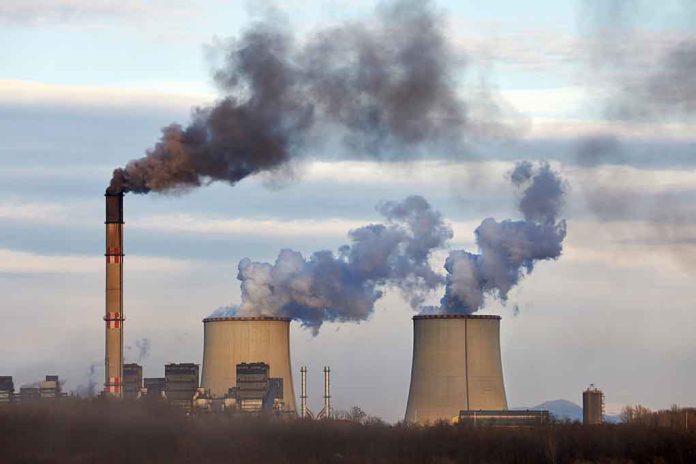
Is the world on the brink of another nuclear disaster as UN warns of increasing risks at Russia’s Kursk Power Plant?
At a Glance
- The UN’s nuclear watchdog chief, Rafael Grossi, warned of heightened risk at the Kursk nuclear power plant in Russia amid Ukraine’s military counteroffensive.
- Drone strikes in the area have left the Kursk plant vulnerable, with the reactor core protected only by a normal roof.
- The Kursk power station operates close to normal conditions despite the conflict.
- Grossi emphasized the neutrality of the International Atomic Energy Agency (IAEA) in the conflict and stressed the need to prevent a nuclear accident.
Heightened Risks at Kursk Nuclear Plant
Rafael Grossi, the chief of the UN’s nuclear watchdog, the IAEA (International Atomic Energy Agency) has highlighted a disturbing vulnerability at Russia’s Kursk nuclear power plant. Visiting the plant, Grossi observed the aftermath of drone strikes in the region, noting the elevated risk and precarious situation. Despite the ongoing conflict, the Kursk power station remarkably continues to operate close to normal conditions.
“The danger or the possibility of a nuclear accident has emerged near here,” Grossi told reporters. He added that during his visit to the plant, he saw evidence of drone strikes in the area. “I was informed about the impact of the drones. I was shown some of the remnants of them and signs of the impact they had,” Grossi said, without attributing blame. “The core of the reactor containing nuclear material is protected just by a normal roof,” he said during his visit. “This makes it extremely exposed and fragile, for example, to an artillery impact or a drone or a missile.”
UN nuclear agency chief Rafael Grossi visited Russia's Kursk nuclear power plant and warned of the risk of a nuclear accident, which Moscow claims has been targeted by Ukrainian forces after seizing a slice of Russian territory https://t.co/SrJNDeXwjT pic.twitter.com/cIagQjkthY
— Reuters (@Reuters) August 27, 2024
Grossi’s Neutrality and Focus on Safety
Despite the gravity of the situation, Grossi maintained the neutrality of the IAEA, emphasizing their commitment to nuclear safety over political disputes. He established five principles of nuclear safety, urging both Russia and Ukraine to observe them. The close proximity of a nuclear plant to military conflicts has become a significant concern, prompting calls for international intervention to prevent a potential catastrophe.
History teaches us the devastating impact of nuclear incidents. Nearly four decades after the Chernobyl disaster, its effects are still discernible, leaving swaths of Russia, Belarus, and Ukraine uninhabitable. The serious consequences of any compromise to nuclear safety cannot be overstated. Grossi’s visit underscores not only the immediate threats but also the potential long-term environmental and human costs.
The United Nations' nuclear watchdog chief warned of increased risk at the nuclear power plant in Kursk, Russia, where Ukraine has been conducting a military counteroffensive.https://t.co/iPo8RrJVIO
— POLITICO (@politico) August 27, 2024
The Imminent Danger
The Kursk nuclear power plant, with its four reactor units — two operational and two shut down — poses a grave concern if assaulted. The facility’s vulnerability to artillery, drone, or missile strikes puts the surrounding region and beyond at risk. Experts argue that while a Chernobyl-type incident is unlikely at Kursk, any damage to its spent fuel storage could unleash radioactive materials.
“A Russian nuclear power plant is currently in ‘danger’ of a nuclear incident amid ongoing fighting with Ukraine,” Grossi reiterated. “There is now a danger of a nuclear incident here. Today I was told about several cases of drone attacks on the territory, on the plant’s facilities. At the plant, I saw traces of these attacks. Preventing a nuclear accident in this terrible war is vital, and attacking any nuclear power plant is unacceptable, no matter the location.”.
The call to action is clear — the international community must prioritize nuclear safety in conflict zones. The close quarters of military operations and sensitive nuclear sites alike underscore the pressing need for vigilance and preventative measures. With potential global ramifications, the situation at Kursk demands our utmost attention and swift, coordinated response.

















